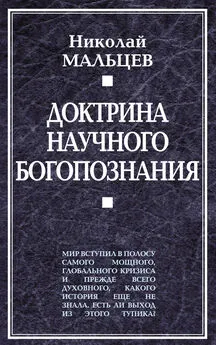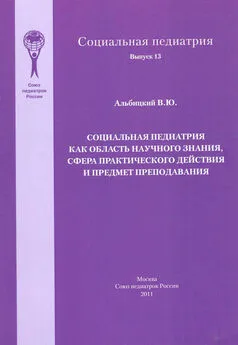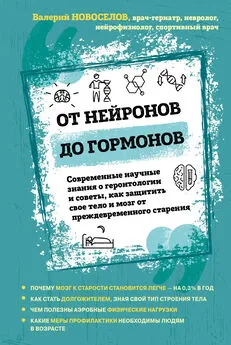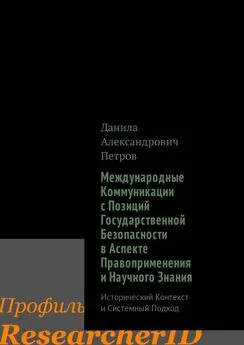Нико Штер - Власть научного знания
- Название:Власть научного знания
- Автор:
- Жанр:
- Издательство:Алетейя
- Год:2015
- Город:Санкт-Петербург
- ISBN:978-5-9905769-3-3
- Рейтинг:
- Избранное:Добавить в избранное
-
Отзывы:
-
Ваша оценка:
Нико Штер - Власть научного знания краткое содержание
В центре внимания социологов Нико Штера и Райнера Грундманна – вопрос о том, при каких условиях научное знание влияет на практическую политику и как именно организовано это влияние.
В поисках ответа авторы книги анализируют три кейса – экономическую теорию и политику Кейнса, науку о расах и ее роль в трагедии холокоста, а также исследования в области климатологии, их восприятие в обществе и их последствия.
Власть научного знания - читать онлайн бесплатно ознакомительный отрывок
Интервал:
Закладка:
Coleman, James S. 1970. “Reply to Cain and Watts”, in: American Sociological Review 35. P. 242–249.
Coleman, James S. 1972a. “Integration of Sociology and Other Social Sciences through Policy Analysis”, in: Charlesworth, James C. (Ed.) Integration of the Social Sciences Through Policy Analysis. Monograph 14 of the American Academy of Political and Social Science. Philadelphia. P. 162174.
Coleman, James S. 1972b. Policy Research in the Social Sciences. Mor-ristowen, New Jersey.
Coleman, James S. 1978. “Sociological Analysis and Social Policy”, in: Bottomere, Tom, and Nisbet, Robert (Eds.) A History of Sociological Analysis. London. P. 677–703.
Coleman, James S. 1982. The Asymmetric Society. Syracuse, New York.
Coleman, James S. 1987. “йе Role of Social Policy Research in Society and in Sociology”, in: The American Sociologist 18. P. 127–133.
Coleman, James S. 1990. “Ue Relation of Sociology to Social Action in the New Social Structure”, in: Coleman, James S. Foundations of Social Theory. Cambridge, Massachusetts.
Collingridge, David, and Colin Reeve. 1986. Science Speaks to Power: The Role of Experts in Policymaking. London: Frances Pinter.
Collingridge, David, and Douglas, Jenny. 1984. “Uree Models of Policymaking: Expert Advice in the Control of Envireonmental Lead”, in: Social Studies of Science 14. P. 443–446.
Collins, H. M. 1985. Changing Order. London: Sage.
Collins, Michael. 1988. “Did Keynes Have the Answer to Unemployment in the 1930s?”, in: Hillard, John (Ed.) J.M. Keynes in Retrospect. The Legacy of the Keynesian Revolution. Aldershot. P. 64–87.
Collins, Randall. 1994. “Why the Social Sciences Won’t become HighConsensus, Rapid-Discovery Science”, in: Sociological Forum 9. P. 155177.
Comte, Auguste. 1975. Auguste Comte and Positivism. The Essential Writings . New York.
Connoly, William E. [1974] 1993. The Terms of Political Discourse. Princeton, New Jersey.
Converse, Philip E. 1986. “Generalization and the Social Psychology of ‘Other Worlds’”, in: Fiske, Donald E., and Shweder, Richard A. (Eds.) Metatheory in Social Science. Pluralism and Subjectivities. Chicago. P. 4260.
Cook, Thomas D. 1981. “Dilemmas in Evaluation of Social Programs”, in: Brewer, Marilynn B., and Collins, Barry E. (Eds.) Scientific Inquiry and the Social Sciences . San Francisco. P. 257–287.
Crane, Diana. 1972. Invisible Colleges. Diffusion of Knowledge in Scientific Communities. Chicago.
Crew, David F. (Ed.). 1994. Nazism and German Society. London and New York: Routledge.
Crowley, T. J., Lowery T. 2000. “How Warm Was the Medieval Warm Period?”, in: Ambio 29. P. 51–54.
Daele, Wolfgang van den. 1996. “Objektives Wissen als politische Ressource: Experten und Gegenexperten im Diskurs“, in: Daele, Wolfgang
van den, und Neidhardt, Friedhelm (Hg.) Kommunikation und Entscheidung. Politische Funktionen öffentlicher Meinungsbildung und diskursiver Verfahren. WZB-Jahrbuch 1996. Berlin. S. 297–326.
Dahl, Robert A. 1994. “A Democratic Dilemma: System Effectiveness versus Citizen Participation”, in: Political Science Quarterly 109. P. 23–34.
Dahrendorf Ralf. 1968 [1967]. “Sociology and the Sociologist. On the Problem of Heory and Practice”, in: Dahrendorf, Ralf. Essays in the Theory of Society. London. P. 256–278.
Dahrendorf, Ralf. 1963. Die angewandte Aufklärung. Gesellschaft und Soziologie in Amerika. München.
Dahrendorf, Ralf, 1989. “Einführung in die Soziologie”, in: Soziale Welt 49. S. 2-10.
Damro, Chad, and Pilar Luaces-Mendez. 2003. “He Kyoto Protocol’s Emissions Trading System: An EU-US Environmental Flip-Flop”, in: Earth. P. 1–19, http://aei.pitt.edu/archive/00000874.
Dant T., Francis D. 1998. “Planning in Organizations: Rational Conduct or Contingent Activity”, in: SociologicalResearchOnlin3, http://www. socresonline.org.uk/socresonline/3/2/4.html.
Daston, Lorrain, and Galison, Peter. 2007. Objectivity. Cambridge, Massachusetts.
Davidson, Paul. 1984 [1981]. „Die Postkeynesianische Wirtschaftswissenschaft: Die Lösung der Krise in der Wirtschaftstheorie“, in: Bell, Daniel, und Kristol, Irving (Hg.) Die Krise in der Wirtschaftstheorie. Berlin. S. 190–217.
Davidson, Paul. 1978. Money and the Real World. New York: Wiley.
Davidson, Paul. 2009. He Keynes Solution: He Path to Global Economic Prosperity. New York: Palgrave MacMillan.
Davis, Howard R. 1973. “Innovation and Change”, in: Feldman, Saul (Ed.) The Administration of Mental Health Services. Springfield, Illinois. P. 289–341.
Deichmann, Ute. 1992. Biologen unter Hitler. Frankfurt/M.
Dewey, John. 1900. “Psychology and Social Practice”, in: Psychological Review 7. P. 105–124.
Dewey, John. 1931. “Social Science and Social Control”, New Republic 67. P. 276 и далее.
Dewey, John. 1970. “He Development of American Pragmatism”, in: Hayler H.S. (Ed.) Pragmatism: The Classic Writings. New York. P. 23–40.
Dibble Vernon K. 1968. “Social Science and Political Commitment in the Young Max Weber”, in: European Journal of Sociology 9. P. 92–110.
Diesing, Paul. 1982. Science and Ideology in the Policy Sciences. New York: Aldine.
Dobbin, Frank R. 1993. “tte Social Construction of the Great Depression: Industrial Policy during the 1930s in the United States, Britain, and France”, in: Theory and Society 22 (1). P. 1–56.
Drori, Gili S., and Meyer, John W., and Ramirez, Francisco O., and Schafer, Evan. 2003. Science in the Modern World Policy. Institutionalization and Globalization . Stanford, California.
Drucker, Peter F. [1980] 1981a. “Toward the Next Economics”, in: Peter F. Drucker. Toward the Next Economics and Other Essays . New York: Harper and Row. P. 1–21.
Drucker, Peter F. [1981] 1984. “Auf dem Wege zur nächsten Wirtschaftstheorie“, in: Daniel Bell and Irving Kristol (Eds.) Die Krise in der Wirtschaftstheorie. Berlin: Springer. 1-19.
Drucker, Peter F. 1971. “tte New Markets and the New Capitalism”, in: Daniel Bell and Irving Kristol (Eds.) Capitalism Today . New York: Basic Books. P. 44–79.
Drucker, Peter F. 1981b. “Toward the Next Economics”, in: Daniel Bell and Irving Kristol (Eds.) The Crisis of Economic Theory. New York: Basic Books. P 4-18.
Drucker, Peter F. 1986. “He Changed World Economy”, in: Foreign Affairs. P. 768–791.
Dreyberg, Torben Bech. 1997. The Circular Structure of Power, Politics and Identity. London.
Dubin, Robert. 1976. “Heory Building in Applied Areas”, in: Dunnette, Marvin (Ed.) Handbook of Industrial and Organizational Psychologe. Chicago. P. 17–39.
Dunn, William N., and Holzner, Burkart. 1988. “Knowledge in Society: Anatomy of an Emergent Field”, in: Knowledge in Society I. P. 3–26.
Durkheim, Emile [1895] 1982. Rules of Sociological Method. London.
Durkheim, Emile [1897] 1952. Suicide: A Study in Sociology. London: Routledge & Kegan Paul.
Durkheim, Emile [1909] 1978. “Sociology and the Social Sciences”, in: Emile Durkheim. On Institutional Analysis. Chicago: University of Chicago Press. P. 71–87.
Durkheim, Emile [1912] 1965. The Elementary Forms of Religious Life. New York: Free Press.
Durkheim, Emile [1955] 1983. Pragmatism and Sociology. Cambridge: Cambridge University Press.
East, Edward M. 1929. Heredity and Human Affairs. New York and London: Charles Scribner’s Sons.
Eastin, Joshua, Reiner Grundmann, and Aseem Prakash. 2011. “tte Two ‘Limits’ Debates: ‘Limits to Growth’ and Climate Change”, in: Futures 43. P. 16–26.
Edwards, Paul N. 1996. “Global Comprehensive Models in Politics and Policymaking”, in: Climatic Change 32. P. 149–161.
Edwards, Paul N., and Stephen H. Schneider. 2001. “Self-governance and Peer-Review in Science-for-Policy: The Case of the IPCC Second Assessment Report”, in: C.A. Miller and P. Edwards (Eds.) Changing the Atmosphere: Expert Knowledge and Environmental Governance. Cambridge, Massachusetts. P. 219–246.
Edwards, Paul N., and Stephen H. Schneider. 1999. “Global Climate Science, Uncertainty and Politics: Data-Laden Models, Model-Filtered Data”, in: Science as Culture 8. P. 437–472.
EEA (European Environment Agency). 2005. Annual report 2004. Luxembourg: Office for Official Publications of the European Communities.
Efron, John M. 1994. Defenders of the Race: Jewish Doctors and Race Science in fin-du-siecle Europe. New Haven.
Elias, Norbert. 1989. Studien über die Deutschen. Machtkämpfe und Habitusentwicklung im 19. und 20. Jahrhundert. Frankfurt/M.
Elias, Norbert. 1974. “tte Sciences: Toward a Heory”, in: Whitley, Richard (Ed.) Social Processes of Scientific Development. London. P. 21–44.
Elias, Norbert. 1971. “Sociology of Knowledge: New Perspectives”, Sociology 5. P. 149–168 & 335–370.
Elster, Jon. 1979. “Risk, Uncertainty and Nuclear Power”, in: Social Science Information 18. P. 371–400.
Elzinga, Aant. 1995. “Shaping Worldwide Consensus: He Orchestration of Global Climate Change Research”, in: Aant Elzinga and Catharina Landström (Eds.) Internationalism in Science. London: Taylor and Graham. P. 223–255.
Entman, Robert M. 1993. “Framing: Toward Clarification of a Fractured Paradigm”, in: Journal of Communication 43 (4). P. 51–58.
Eriksson, Johan. 2005. “Molding Minds Rather than Form Policy: How to Make Research Useful”, in: International Studies Perspectives 6. P. 51–71.
Eriksson, Johan. 1999. “Observers or Advocates: On the Political Role of Security Analysts”, in: Cooperation and Conflict 34. P. 311–330.
Eulau, Heinz. 1973. “Social Revolution and the Consultive Commonwealth”, in: American Political Science Review 67. P. 169–191.
Eze, Emmanuel Chukwudi. 1997. Race and the Enlightenment. A Reader. Oxford.
Ezrahi, Yaron. 1980. “Utopian and Pragmatic Rationalism: tte Political Context of Scientific Advice”, in: Minerva 18. P. 111–131.
Fairchild, Henry Pratt. 1932. “tte Possibility, Character and Functions of Applied Sociology”, in: Social Forces II. P. 182–187.
Farman, J. C., B. G. Gardiner and J. D. Shanklin. 1985. “Large Losses of Total Ozone in Antarctica Reveal Seasonal ClO /NO Interaction”, in: Nature 315. P. 207–210.
Feuer, Lewis S. 1963. The Scientific Intellectual. New York.
Feuer, Lewis S. 1954. “Causality in the Social Sciences”, in: The Journal of Philosophy 51. P. 681–695.
Читать дальшеИнтервал:
Закладка:










